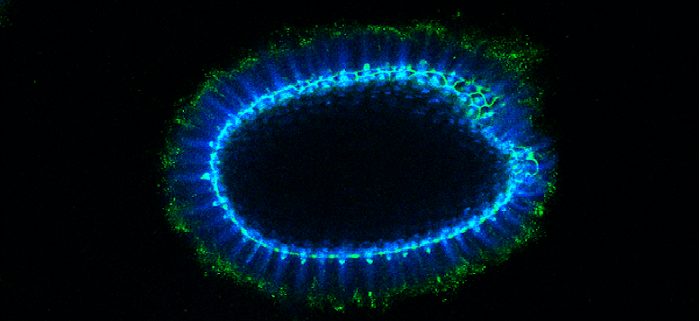Pectin Maturation is Fine-tuned by an ERF-MYB Complex
Anming Ding, Tobacco Research Institute, Chinese Academy of Agricultural Sciences (CAAS)
BY: Yingzhen Kong, College of Agronomy, Qingdao Agricultural University
Background: Pectin is a major component of the plant cell wall. Pectin synthesis in the plant cell and maturation in the cell wall are catalyzed by various enzymes. Pectin methylesterase (PME) is one such enzyme that is involved in the de-methylesterification of pectin. The degree of methylesterification (DM) of pectin is finely controlled and it has essential functions during plant growth and development and plant interactions with the surrounding environment by affecting the rheological properties of the cell wall. A group of genes have been identified in DM modification by using the mucilage that surrounds Arabidopsis thaliana seeds. However, how plants maintain a proper level of DM of pectin, and thus regulate growth and development, remains to be elucidated.
Question: How is the degree of pectin methylesterification modification finely regulated?
Findings: The expression of an AP2/ERF transcription factor ERF4 is confined to seed coat epidermal cells during the early stages of seed development. Loss-of-function mutations in ERF4 result in reduced mucilage halo that surrounds the seed compared to the wild type. Pectin synthesis is not affected, while pectin DM level is increased as a result of decreased PME activity in erf4 mutants. Four direct target genes, which inhibit PME, were identified as being negatively regulated by ERF4. ERF4 shares common targets with the transcription factor MYB52, which negatively regulates the DM level. ERF4 and MYB52 regulate downstream gene expression in an opposite manner by antagonizing each other’s DNA-binding ability through a physical interaction. Therefore, the pectin DM in the seed mucilage is fine-tuned by an ERF4-MYB52 transcriptional complex.
Next steps: We are working to identify more transcription factors that may function in pectin synthesis and DM modification using the Arabidopsis seed coat mucilage as a model. Moreover, we are testifying the physical interactions among these transcription factors. Ultimately, we are aiming to decipher the transcriptional regulatory network that regulates pectin production.
Anming Ding, Xianfeng Tang, Dahai Yang, Meng Wang, Angyan Ren, Zongchang Xu, Ruibo Hu, Gongke Zhou, Malcolm O’Neill, Yingzhen Kong. (2020). ERF4 and MYB52 transcription factors play antagonistic roles in regulating homogalacturonan de-methylesterification in Arabidopsis seed coat mucilage. Plant Cell. https://bit.ly/3dznj16




